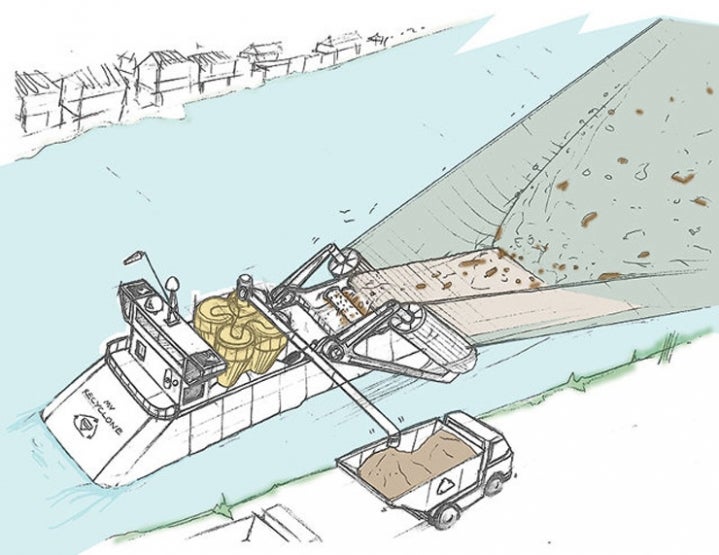James Dyson outlines 'Recyclone' concept barge that would vacuum rivers clean
Dyson's patented cyclone vacuums would suck up the plastic debris

Your support helps us to tell the story
From reproductive rights to climate change to Big Tech, The Independent is on the ground when the story is developing. Whether it's investigating the financials of Elon Musk's pro-Trump PAC or producing our latest documentary, 'The A Word', which shines a light on the American women fighting for reproductive rights, we know how important it is to parse out the facts from the messaging.
At such a critical moment in US history, we need reporters on the ground. Your donation allows us to keep sending journalists to speak to both sides of the story.
The Independent is trusted by Americans across the entire political spectrum. And unlike many other quality news outlets, we choose not to lock Americans out of our reporting and analysis with paywalls. We believe quality journalism should be available to everyone, paid for by those who can afford it.
Your support makes all the difference.James Dyson has suggested using his company’s vacuuming expertise to create a unique barge that cleans waterways by sucking up plastic and other debris.
Dyson proposed the idea in Time, noting that “the amount of plastic debris in the oceans has grown a hundredfold in the past 40 years” and that as plastic doesn’t biodegrade, humans are creating huge floating garbage patches that kill sealife and birds mistaking the material for food.
The M.V. Recyclone barge would aim to help reduce pollution by targeting rivers - often the source of contamination. With a large net fixed to each side of the river to dredge the surface, an onboard suction system (using the same cyclone technology in Dyson’s vacuums) would pull in plastic waste to be shredded and sorted by grades of plastic.
"By skimming a highly concentrated flow of larger sized plastics in polluted rivers, the M.V. Recyclone would effectively mine a major source of the pollution before it reached the sea," said Dyson in an email exchange with Fast Company.
“To capture both large and small debris, you would probably need to employ a series of stages of separation. As better technology became available, you could upgrade the vessel to make it more efficient," he said.
Of course, this is little more than a concept at the present time, with Dyson freely admitting that the design would need serious work before it became a reality: “The concept is the easy bit! It would need to be prototyped, tested, and refined and that’s the hard part.”
Join our commenting forum
Join thought-provoking conversations, follow other Independent readers and see their replies
Comments